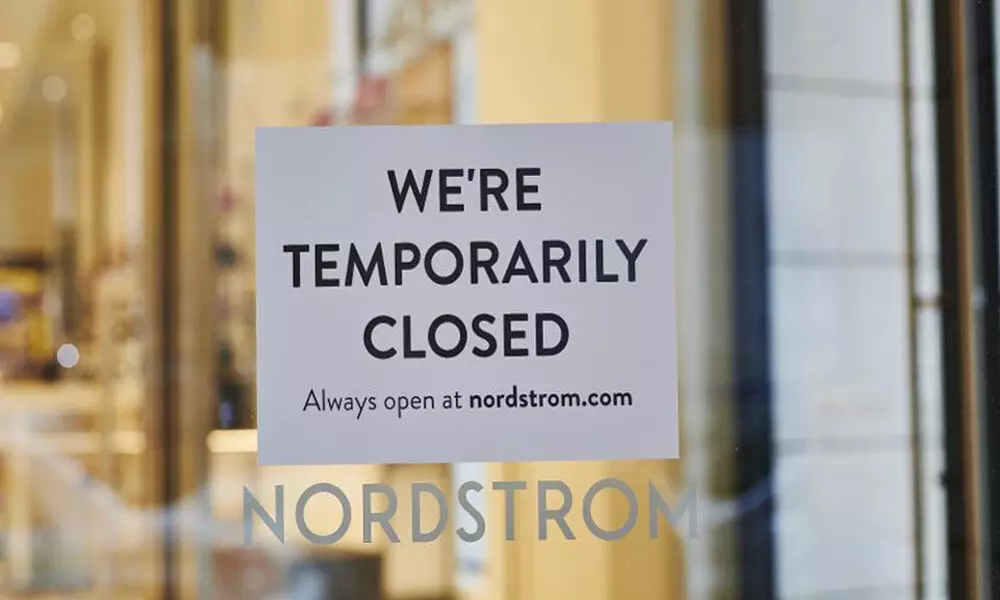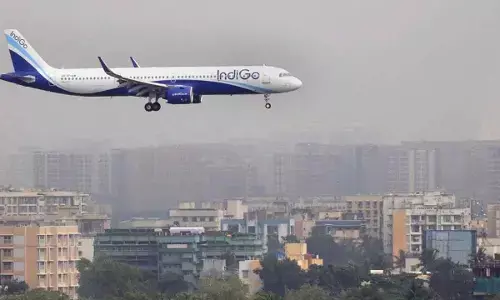Apparel, restaurants, footwear among retail to take a hit by Covid
 Apparel, restaurants, footwear among retail to take a hit by Covid
Apparel, restaurants, footwear among retail to take a hit by CovidCovid 19 will have an impact across the board on discretionary categories in the retail sector as limited social interactions and increased WFH trends may hit apparel, quick service restaurants (QSR) and footwear players.
New Delhi: Covid 19 will have an impact across the board on discretionary categories in the retail sector as limited social interactions and increased WFH trends may hit apparel, quick service restaurants (QSR) and footwear players.
According to a report by Ambit Capital, Covid drives multiple uncertainties for the richly valued, high-fixed-cost, metro-centric Retail sector.
Change in consumer behaviour and priorities, lower credit availability and loss of jobs and income cuts would hit low ticket discretionary category too. Slow demand recovery will aggravate cost pain for companies. Strong growth case built on both store expansion and will pause. Over a longer period, industry consolidation will benefit stronger players though Covid could potentially wipe out next 2 years' earnings growth.
The report said macro pain would aggravate post Covid. Consumption growth had started to slow down even pre-Covid. While job creation was slow, increase in credit (cards, personal loans) supported consumption. Banks have already started to cut credit card limits and lifestyle spends accounted for 12 per cent of overall credit card spends. Pay cuts and job losses have accelerated and retail credit availability has been squeezed. Cost cutting and broader slowdown will also impact various SMEs and self-employed. In addition, the 10 cities accounting for 50 per cent of revenues are slowest to recover, delaying recovery and pain.
Covid will have an impact across the board on the retail sector. The impact on various discretionary categories may not be very different as limited social interactions and increased WFH trends may hit apparel, QSR and footwear players, the report said.
The ability to cater to limited footfalls in peak hours due to social distancing would also hit throughput for DMart and PVR. "We expect 1QFY21 to be largely a washout with gradual recovery from 2HFY21; absolute revenue growth to be weak until 2HFY22," it said.
The higher costs of sanitization and staggered store timings would increase operational cost. Cut in rentals and employee and other costs may not be good enough to turn green in FY21. Slower store rollouts and even slower retail space developments would hurt medium-term growth, the report said.
Consumer confidence index is at decade low. Spending on grocery has increased the most while lifestyle/apparel have been worst affected. Consumer debt on credit cards has grown at 29 per cent CAGR over FY15-20, the report said.
Between June and December 2020, as cities get opened up gradually, while there may be initial spike in consumption due to pentup demand, but would gradually subside as number of corona cases spike up meaningfully, the report said.
The consumer mood may remain gloomy as SMEs businessmen and white collar professionals both continue to face risks to their earnings.Until Corona vaccine comes in (unlikely before 1HCY21), footfalls may remain muted delaying oxygen to severely critical retailers.










